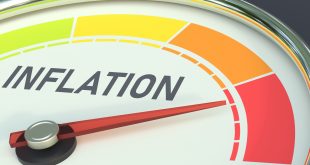European equity indices traded in narrow ranges on Thursday as investors remained cautious ahead of the European Central Bank’s (ECB) latest policy decision and digested a fresh round of corporate earnings.
As of 03:15 ET (07:15 GMT), Germany’s DAX index rose 0.4%, while the CAC 40 in France slipped 0.2% and the FTSE 100 in the United Kingdom fell 0.2%. The pan-European Stoxx 600 index was down 0.3%.
ECB Expected to Deliver Another Rate Cut
Later in the session, the ECB is expected to announce its seventh interest rate cut within a year as it continues efforts to support the eurozone’s underperforming economy. The move comes amid persistent signs of weak inflation and subdued demand across the region.
New data released earlier Thursday showed that German producer prices fell by 0.2% year-on-year in March, reinforcing the view that inflationary pressures remain minimal in Europe’s largest economy. This followed Wednesday’s report indicating that eurozone inflation had slowed to an annual rate of just 2.2% in March, below the ECB’s target.
Analysts expect the ECB to remain in easing mode as growth prospects stay limited and disinflation risks persist.
Focus on Global Trade Negotiations
In addition to monetary policy, markets were closely monitoring developments in global trade. A Japanese trade delegation arrived in Washington this week for formal talks aimed at securing a bilateral agreement with the United States. President Donald Trump described the meeting as making “big progress,” suggesting early momentum toward resolving some of the uncertainties created by U.S. tariff policy.
Japan is the first major trading partner to enter formal negotiations with Washington under the current tariff regime. The talks are viewed as a potential model for other countries, including members of the European Union. EU Commission President Ursula von der Leyen has reiterated the bloc’s position that the U.S. tariffs are unjustified, but said the EU remains open to negotiations.
Corporate Earnings Paint Mixed Picture
The European corporate earnings season continued to deliver a mixed set of results, reflecting varied impacts of inflation, tariffs, and shifting consumer demand.
In France, Pernod Ricard reported a 3% decline in third-quarter sales, falling short of analyst expectations. The spirits maker cited tariff-related headwinds and soft demand in key markets.
Luxury fashion group Hermès posted a 7% increase in first-quarter sales, slightly below estimates. The company noted some weakness in its core fashion and leather goods segment amid a challenging economic environment.
Swiss-Swedish industrial group ABB reported a 22% rise in first-quarter profit, supported by increased orders, higher margins, and progress on its restructuring strategy. ABB also announced plans to spin off its Robotics division in 2026.
In the UK, J. Sainsbury delivered a 7.2% increase in annual profit. However, the supermarket chain issued a cautious outlook for the new financial year, citing rising costs and intensifying competition.
Outside of Europe, Taiwan Semiconductor Manufacturing Company reported a 60% jump in first-quarter net income, driven by strong demand for advanced chips. The results from the world’s largest contract chipmaker were seen as a positive indicator for the broader semiconductor industry.
Outlook
Investor sentiment remains cautious as attention turns to the ECB’s policy statement and guidance for the remainder of the year. Any shift in tone or pace of future rate cuts could influence short-term market direction. In parallel, ongoing trade negotiations between the U.S. and its key partners, including Japan and potentially the EU, are expected to play a pivotal role in shaping the region’s economic outlook and market stability.
With uncertainty still surrounding global trade policy and inflation trends, European markets are likely to remain sensitive to both macroeconomic signals and corporate earnings in the weeks ahead.
 Noor Trends News, Technical Analysis, Educational Tools and Recommendations
Noor Trends News, Technical Analysis, Educational Tools and Recommendations





